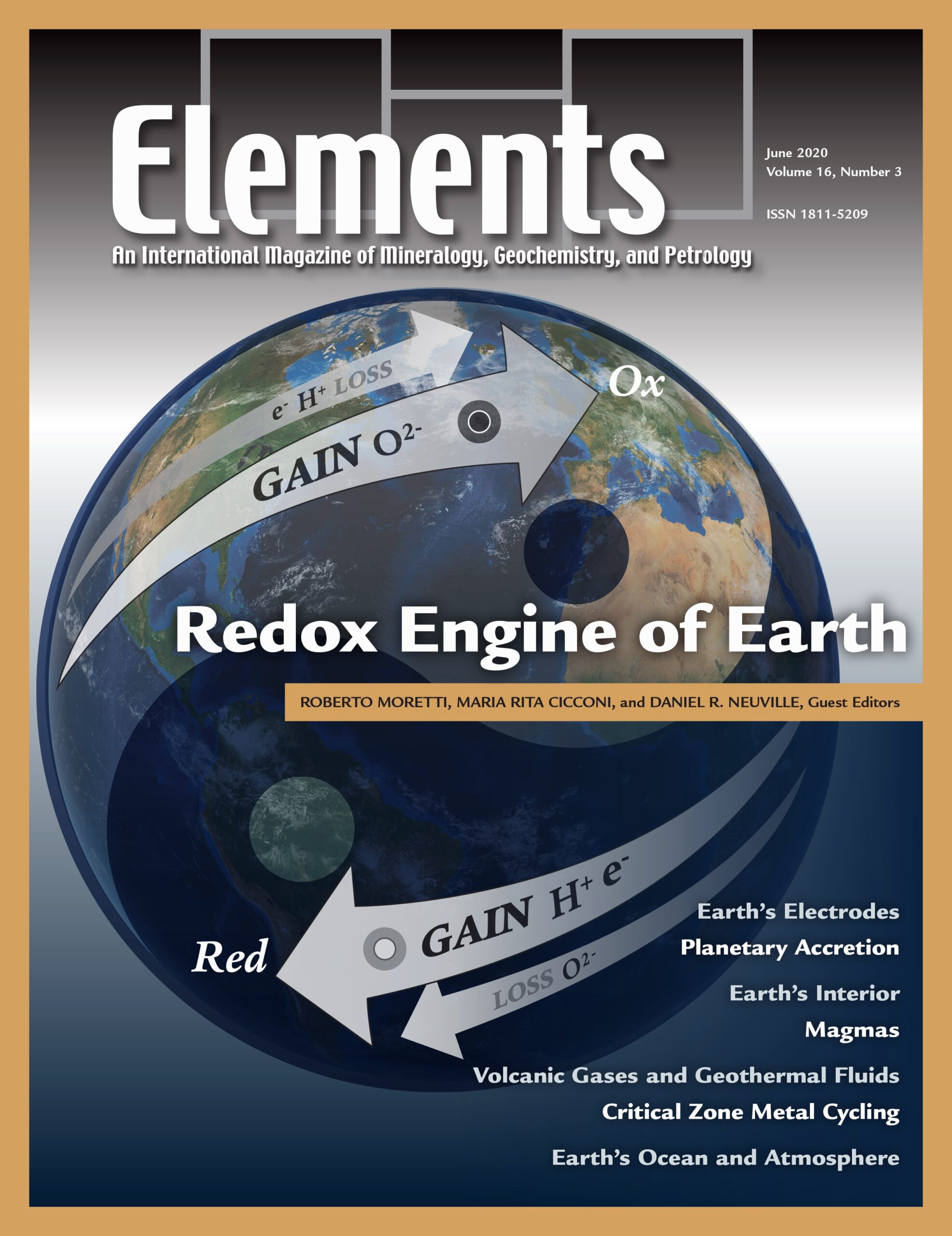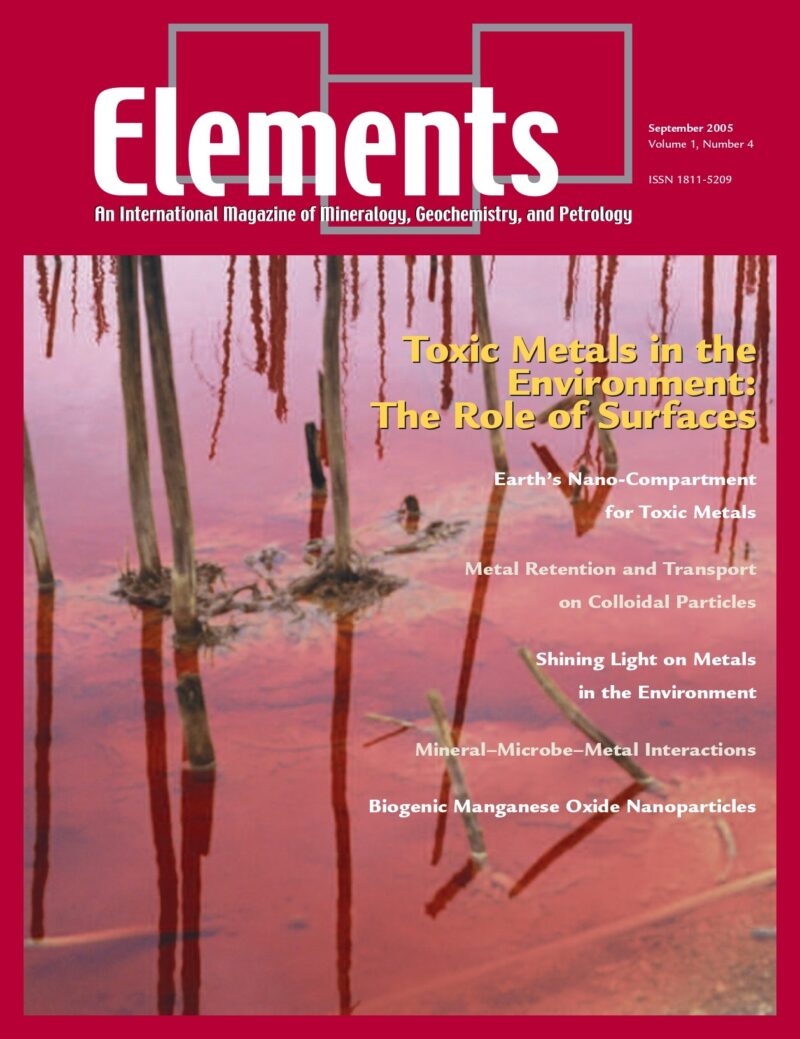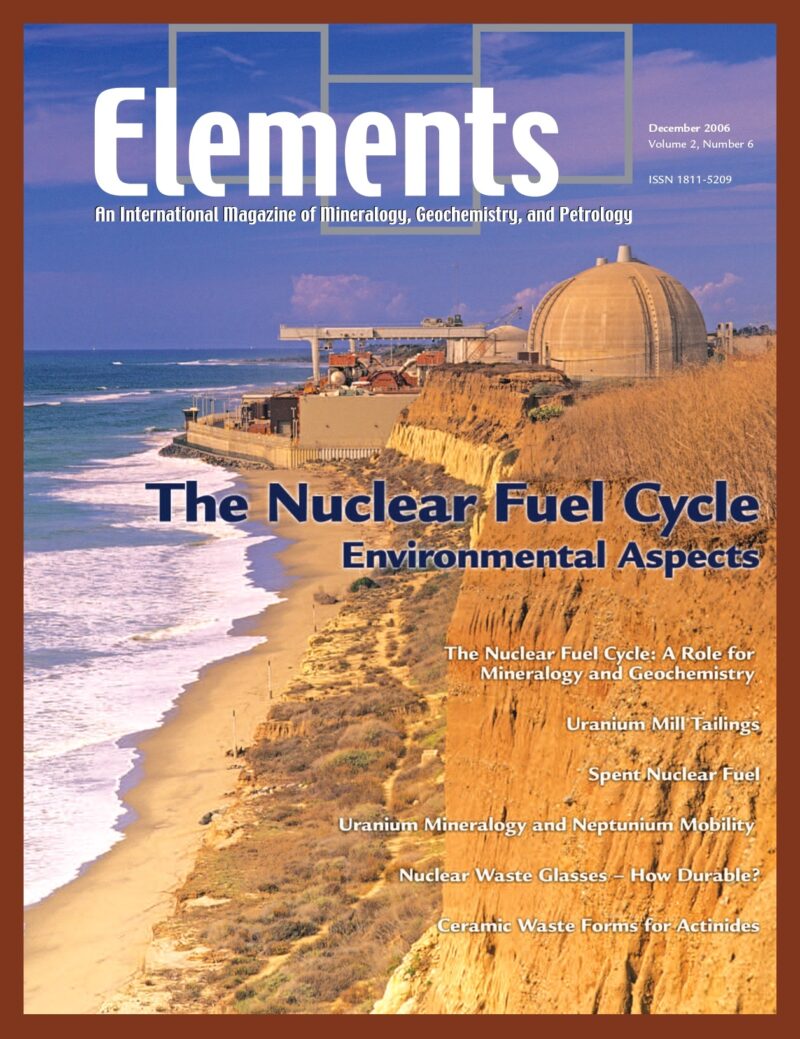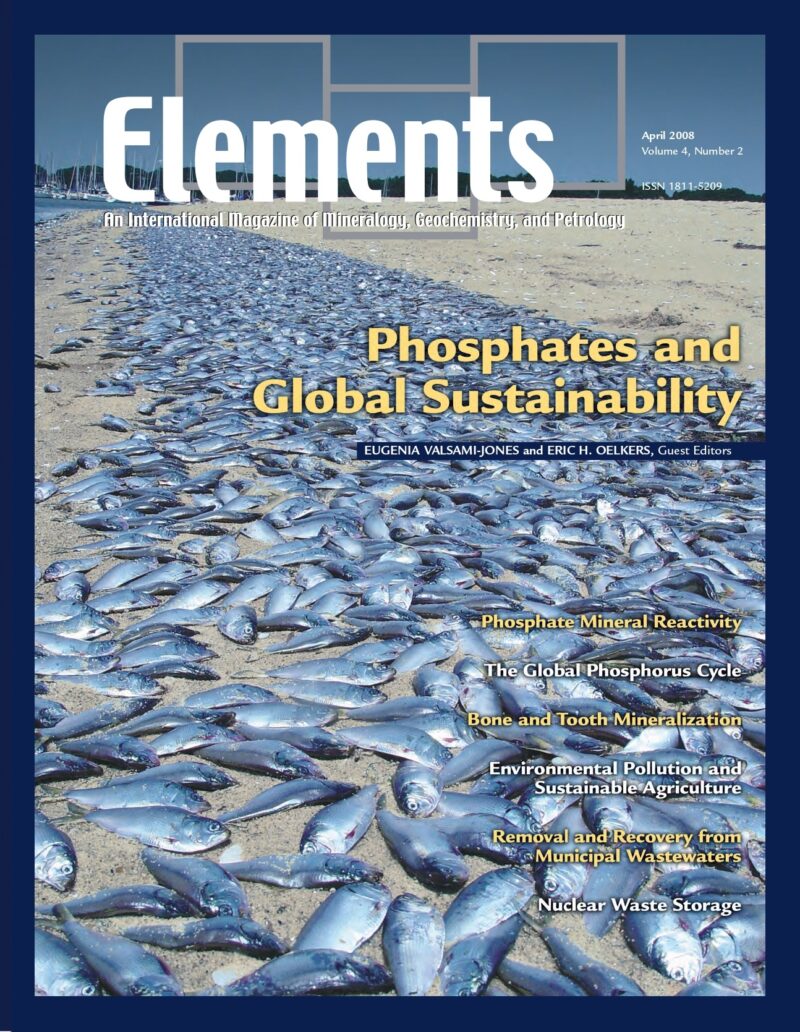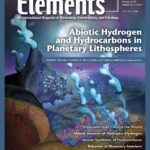
Abiotic Hydrogen And Hydrocarbons In Planetary Lithospheres, February 2020, Vol. 16, No. 1
June 28, 2024
Shedding Light On The European Alps, February 2021, Vol. 17, No. 1
June 28, 2024The Redox Engine Of Earth, June 2020, Vol. 16, No. 3
$20.00
The redox state is one of the master variables that drove the formation of the Earth and that now also controls life processes. From the dawn of geochemistry, a knowledge of redox states has been essential to understanding the compositional makeup of our planet and the fundamental processes that occur in any natural chemical system, from the core to the atmosphere, from magmatic systems to aquatic systems.
The Redox Engine Of Earth
June 2020, Vol. 16, No. 3
The redox state is one of the master variables that drove the formation of the Earth and that now also controls life processes. From the dawn of geochemistry, a knowledge of redox states has been essential to understanding the compositional makeup of our planet and the fundamental processes that occur in any natural chemical system, from the core to the atmosphere, from magmatic systems to aquatic systems. The social and economic impact of redox geochemistry is enormous because of the control it plays on metal mobility, solubility, metal availability and any associated complexing ligands, and the widespread use of redox indicators for environmental hazard assessment. This issue of Elements illustrates how understanding redox processes can help us to understand much of Earth’s activity.
Why You’ll Love Elements Magazine:
- Expert Contributors: Articles written by renowned researchers in the field of geoscience.
- Engaging Content: Join a community of readers who are passionate about Elements.
- Exceptional Quality: Each issue is printed on high-quality paper with stunning visuals and detailed illustrations that bring complex scientific concepts to life.
Order your copy of the June 2020 issue of Elements magazine today and explore the redox engine of Earth.
Related products
-
Toxic Metals In The Environment: The Role Of Surfaces, September 2005, Vol. 1, No. 4
$20.00Metals are prevalent in the environment. They are derived from both natural and anthropogenic sources.
-
The Nuclear Fuel Cycle – Environmental Aspects, December 2006, Vol. 2, No. 6
$20.00Increasing concerns for the effects of global warming that result from rising greenhouse gas concentrations in the atmosphere have led to a reexamination, even enthusiasm, for nuclear power. Of all the current alternatives to fossil fuels, nuclear fission is the most important source of energy, accounting for 17 percent of the world’s electricity.
-
Phosphates And Global Sustainability, April 2008, Vol. 4, No. 2
$20.00Phosphorus is a unique element: it is essential to the existence of all living forms, and as such controls biological productivity in many terrestrial and marine environments; but when in excess, it leads to uncontrollable biological growth and water-quality problems. This has become a common environmental issue, resulting from our careless use of phosphorus in agriculture, yet phosphate ore deposits, from which fertilizers are produced, are a finite natural resource.

